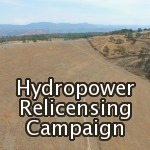Article from Modesto Bee.
https://www.modbee.com/news/article216818075.html
By Ken Carlson
August 17, 2018 03:01 PM
Opponents of a state “water grab” are taking their political battle to the steps of the state Capitol building in Sacramento on Monday.
From 500 to 1,000 people are expected at a rally to protest a state water board plan to double the amount of water taken from the Tuolumne River to improve water quality in the Sacramento-San Joaquin river delta and restore fish populations.
The plan, also to take additional water from the Stanislaus and Merced rivers, is opposed by irrigation districts and cities that predict devastating effects on agriculture and the economy in the Northern San Joaquin Valley. The noon rally is expected to draw busloads of people from the Modesto and Merced areas, but organizers also have heard from folks in Tulare and the Sacramento Valley who want to attend.
Assemblyman Adam Gray, D-Merced, the chief organizer, said the water board’s Bay-Delta plan is part of broader efforts to reallocate water resources in the state and that’s upsetting to communities with senior water rights.
“Phase II of this plan is water from the Sacramento River,” Gray said Thursday. “There is so much frustration in the communities around the state that people started calling and saying, ‘we are fed up with Sacramento trying to take our water’.”
Gray and Rep. Tom McClintock, R-Elk Grove, as well as county supervisors and Farm Bureau representatives are scheduled to speak. A number of students and marching bands are expected at the rally, while some groups could advocate for delta protections at their own event.
The rally was timed the day before water board meetings on the Bay Delta plan, set for Tuesday and Wednesday, but officials said recently the board won’t take action on the plan until later in the year. To Gray, the decision to postpone the vote is a sign the board is starting to feel pressure from the affected communities.
“It does not mean it is time to let up,” Gray said.
Water board Chairwoman Felicia Marcus has said that the Modesto and Turlock irrigation districts and others need to sacrifice more water to avert an ecological crisis in the delta. Chinook salmon have virtually disappeared from the lower San Joaquin, Tuolumne, Stanislaus and Merced rivers and other species are harmed by degraded water quality, Marcus says.
The chairwoman suggests that water users adapt by growing crops that use less water and by putting more storage in reservoirs during wet years. The plan is part of a broader concept of less reliance on the delta for supplying water for cities and farmland in the state. About 26 million Californians are supplied with drinking water from the delta.
While the water board has called for negotiated settlements that are less stringent than what could be required under state or federal environmental laws, local agencies are poised to file suit if the plan is adopted.
In late July, the Modesto City Council approved $100,000 for a response to the Bay Delta proposal and said it’s likely the city will join in litigation to challenge it.
About one-third of the city water supplied to 200,000 customers consists of treated Tuolumne River water purchased from MID. As a result of the water board proposal, Modesto customers would receive less surface water from MID in dry years, forcing the city to pump more from wells and possibly leading to over-drafting. According to a staff report in July, the delta plan also would limit the city’s ability to develop and grow.
Councilman Bill Zoslocki said the city has been progressive in managing water and providing recycled wastewater to farmland in western Stanislaus County. He sees no problem with the city joining in litigation to protect its water supply.
“This is just a continual march by the state to grab more of our water rights,” said Zoslocki, who suspects the “water grab” is tied to Gov. Jerry Brown’s delta tunnels project, also called the California WaterFix. Some believe the state needs fresh water from the Tuolumne, Stanislaus and Merced if Sacramento River water is routed through the tunnels and shipped to the Southland.
“It’s a water fix and the fix is on us,” Zoslocki said.
A spokesperson said the MID has prepared for more than a year to engage in litigation. “We are prepared to file as soon as they vote,” spokeswoman Melissa Williams said.
Groups who support higher river flows to restore salmon and steelhead trout have their own history of lawsuits over delta issues.
Marcus has called for negotiated settlements with irrigation districts and an “adaptive management” approach, in which districts would start with 40 percent unimpaired flow in rivers and possibly scale down to smaller flows if the measures are effective.
In comments on the Bay Delta plan, the California Sportfishing Protection Alliance compared adaptive management to previous “back room deals” with water districts that failed to produce results for the delta.
Groups such as the Tuolumne River Trust contend that an increase in spring flows on the Tuolumne, from an average 20 percent to 50 or 60 percent, is needed to restore the salmon.
The Tuolumne also is a source of water for 2.7 million Bay Area residents served by the San Francisco Public Utilities Commission, which has rights to water in Hetch Hetchy Reservoir high in the Sierra Nevada. The utility says that releasing 40 percent unimpaired flows from February through June would have limited benefits for fish but would result in more severe water rationing for Bay Area customers and would further complicate a housing shortage.
“If the state water board’s plan had been in place during the most recent drought, San Franciscans would have had to go from already conservative 41 gallons of water per day to nearly 20 gallons of water per day — which is below the standards for basic health needs,” said the PUC, which doesn’t intend to participate in the Sacramento rally.
To reduce pressure on the delta, the water board has suggested a desalination plant in the Suisun Bay to serve Bay Area customers.
Another group predicts building moratoriums in several cities and a more crippling housing crisis if too much water is sacrificed for environmental purposes in the delta. “Anything that makes it more difficult to build more housing is a threat to the Bay Area economy and that is a threat to the rest of California,” said Adrian Covert, vice president of public policy for the Bay Area Council.
“The Bay Area economy is the strongest economy in the United States, but the Achilles heel is the inability to build housing for our workforce,” Covert said.
As an alternative plan to restore salmon, the San Francisco PUC, along with MID and TID, propose a management plan for the Tuolumne between La Grange and the San Joaquin River, including a hatchery, gravel cleaning, habitat improvements and suppression of nonnative bass that feed on young salmon.
The management plan has not gained much traction with the state water board.
The rally Monday will begin at noon on the north steps of the Sacramento Capitol Building, facing L Street.









